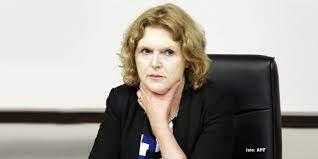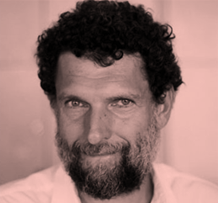
Türkiye’s failure to release human rights defender Osman Kavala from prison may have far reaching consequences for all those seeking justice in the country, a UN expert warned today.
“This month marks five years since Osman Kavala was arrested and Türkiye has now twice ignored binding rulings of the highest human rights court in Europe for his release,” said Mary Lawlor, UN Special Rapporteur on the situation of human rights defenders.
“Türkiye’s continued disregard for the court’s decision is a dangerous attack on the regional human rights mechanism,” she said.
Lawlor was referring to Kavala’s case before the European Court of Human Rights (ECtHR), which has repeatedly considered evidence presented by Türkiye to be insufficient to support the allegations against him.
Kavala, an activist and philanthropist, has been imprisoned since October 2017, and charged with espionage and using violence to disrupt constitutional order. Earlier this year he was convicted of attempting to overthrow the Government and sentenced to aggravated life imprisonment. The ECtHR considers the true purpose of his detention is “reducing him to silence”.
Turkish courts have repeatedly ignored the ECtHR’s original 2019 judgment ordering the release of Kavala.
“Decisions of the ECtHR are final and binding over all Turkish courts. The decision to not abide by its ruling is a decision to reject the very human rights instruments that Türkiye has signed and committed itself to,” Lawlor said.
Following the continued detention of Kavala, the ECtHR initiated infringement proceedings against Türkiye. This would be the second time in its 63-year history that the European court has initiated this process. On 11 July 2022, the proceedings found that Türkiye had failed in its obligation to abide by the previous judgment in KAVALA v. TÜRKIYE and re-stated its final judgment ruling for Kavala’s release. To date, Kavala has not been released.
“Mr. Kavala has been unfairly forced to remain in prison for five years now. He should be freed immediately and unconditionally,” said Lawlor. She noted that the ruling was a blow not only to the imprisoned activist but to all human rights defenders seeking accountability for violations.
“The ECtHR is a one of the few remaining avenues available to human rights defenders seeking justice for violations. Don’t take that away from them,” the Special Rapporteur said.
Lawlor’s call was endorsed by Clément Nyaletsossi Voule, Special Rapporteur on the rights to freedom of peaceful assembly and of association; and Miriam Estrada-Castillo (Chair-Rapporteur), Mumba Malila (Vice-chairperson), Elina Steinerte, Priya Gopalan, and Matthew Gillett, Working Group on arbitrary detention.
